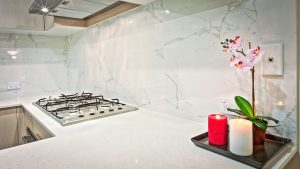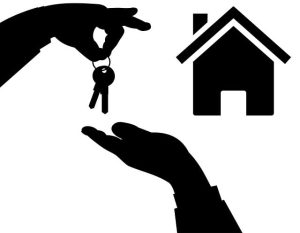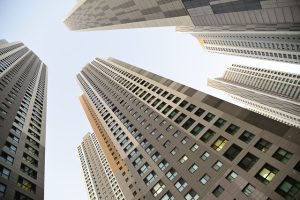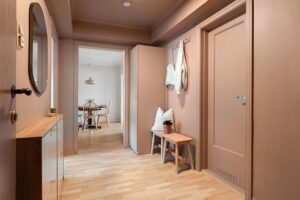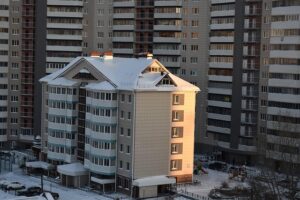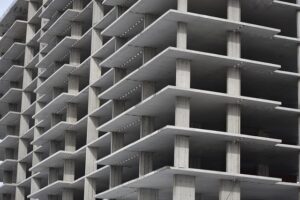Legal Insights into Buying, Owning, and Managing an HDB Executive Condo in Singapore
In Singapore, HDB Executive Condos (ECs) are unique residential developments that blend public and private housing features. Owners of ECs, which have a 99-year lease, must adhere to specific legal terms outlined by the Housing & Development Board (HDB), …….

In Singapore, HDB Executive Condos (ECs) are unique residential developments that blend public and private housing features. Owners of ECs, which have a 99-year lease, must adhere to specific legal terms outlined by the Housing & Development Board (HDB), especially after fulfilling the five-year Minimum Occupation Period (MOP). The Residents' Committee Residential Committees Act (RCRA) governs the establishment of a Residents' Committee and mandates the maintenance of communal areas, with residents actively participating in managing these responsibilities. A Custodian-Staff oversees the daily operations within ECs, ensuring compliance with HDB regulations, handling administrative tasks, and maintaining high living standards. Prospective buyers and sellers of EC units must be aware of these legal frameworks, including the implications for lease terms and the resale market, to navigate the unique aspects of EC ownership effectively. Legal advice is crucial for those involved in en bloc sales or resale transactions within HDB ECs to ensure all conditions are met and rights are upheld.
navigating the complexities of an HDB Executive Condo (EC) requires a thorough understanding of its unique legal framework. This article demystifies the legal aspects of owning, purchasing, and residing in an EC in Singapore, ensuring prospective and current residents are well-informed. From eligibility and benefits to purchase processes, lease considerations, and resale value, each section addresses critical legal considerations. Additionally, we explore the intricacies of en bloc sales and the role of the Custodian-Staff in ECs, empowering you with knowledge about your rights and obligations within an EC’s Residents’ Committee Residential Association (RCRA). This comprehensive guide is tailored for those seeking to make informed decisions within the structured environment of HDB Executive Condos.
- Understanding HDB Executive Condos: Eligibility and Benefits
- Legal Framework Governing HDB Executive Condos in Singapore
- The Purchase Process: Legal Steps for Buying an HDB Executive Condo
- Lease Considerations and Renewal Provisions for ESCs
- En Bloc Sales and Legal Implications for HDB Executive Condo Owners
- Resale Considerations and Legal Rights of HDB Executive Condo Residents
- Maintenance, Management, and Legal Obligations of HDB Executive Condo Residents' Association (RCRA)
- The Role of the Custodian-Staft in HDB Executive Condos and Legal Responsibilities
Understanding HDB Executive Condos: Eligibility and Benefits

Navigating the realm of Housing & Development Board (HDB) Executive Condos (ECs) requires a clear understanding of their unique characteristics and eligibility criteria. ECs are a hybrid housing option designed for young couples and families who aspire to own a larger flat and may later upgrade to a public or private housing flat. Unlike traditional HDB flats, ECs offer more spacious living quarters and come with facilities that cater to the needs of families. Prospective homeowners must satisfy specific conditions to apply for an EC, primarily being at least one Singapore citizen, 21 years old, and not having any market flat owned wholly or partly by them or their spouse. Additionally, applicants must fulfill the Monthly Household Income Ceiling set by the HDB, ensuring that these units remain accessible to middle-income families.
The benefits of purchasing an HDB EC are multifaceted. For starters, they provide a springboard for homeowners to accumulate wealth over time, as ECs appreciate in value with market trends and can be sold back to the HDB or privatized and sold in the open market after satisfying certain conditions. Moreover, the amenities and larger living spaces offered by ECs make them an attractive option for families who require more space than what traditional HDB flats provide. The opportunity to stay in an HDB EC for a minimum of 5 years before selling it on the open market allows residents to enjoy the benefits of subsidized housing while having the flexibility to move to a different type of housing in the future. This unique blend of affordability, space, and potential for appreciation makes HDB ECs a compelling choice for many in Singapore’s housing market.
Legal Framework Governing HDB Executive Condos in Singapore

In Singapore, the legal framework governing HDB Executive Condos (ECs) is a multifaceted set of regulations designed to ensure that these hybrid housing options serve the needs of both upgrading flat owners and young families. The Housing & Development Board (HDB) administers ECs under the Public Private Housing Framework, which outlines the conditions under which these units are sold, including eligibility criteria for applicants. The Building Maintenance and Strata Management Act (BMSMA) also plays a crucial role in the management of ECs once they have been privatized. This act provides guidelines on the responsibilities of managing agents and unit owners, ensuring that common property is well-maintained and that the living environment remains conducive to the community’s needs. Additionally, the HDB’s Master Plan for housing in Singapore incorporates ECs as a key component, reflecting the government’s commitment to providing diverse and adaptable housing options. Prospective buyers must understand these legal guidelines, as they govern aspects such as lease terms, eligibility requirements, and the eventual en-bloc sale process, which allows EC residents to sell their entire development back to developers for redevelopment after a minimum of 10 years. Understanding this legal landscape is essential for anyone considering purchasing an HDB EC in Singapore, as it ensures compliance with housing policies and provides clarity on long-term living arrangements.
The Purchase Process: Legal Steps for Buying an HDB Executive Condo

When considering the purchase of an HDB Executive Condo (EC), it is imperative to navigate the legal steps involved with care and attention. Unlike a private condominium, an EC is a hybrid housing type designed for couples or families who can afford a bigger flat but do not qualify for a public flat due to income restrictions. Prospective buyers must meet the criteria set by the Housing & Development Board (HDB), which include being Singapore citizens and earning an income below the ceiling set by the HDB.
The purchase process for an HDB EC begins with an application of interest, submitted through the HDB resale portal if the unit is not purchased from a developer. Upon successful balloting, applicants enter into a Sale and Purchase Agreement (SPA) with either HDB or the seller. The SPA outlines the terms and conditions of the transaction, including the price and penalty clauses for breach of contract. Buyers should ensure they understand all clauses within the SPA, as it is a legally binding document. Legal completion involves payment of the balance purchase price, after which keys to the new EC are handed over. Throughout this process, it is advisable to engage a lawyer to safeguard your interests and ensure all legal requirements are met. This includes verifying that the seller has complied with all HDB stipulations and that the unit can be sold as an EC. Legal due diligence at this stage prevents potential issues such as leases expiring or the unit not being certified for strata Titles, which could affect ownership rights.
Lease Considerations and Renewal Provisions for ESCs

When considering an Executive Condominium (EC) within the HDB framework, it is crucial to examine the lease terms carefully. Unlike private condominiums, ECs are initially sold on a 99-year leasehold basis with a balance lease of 82 years upon TOP (Temporary Occupation Permit). Prospective buyers should understand that the lease commences from the date of grant of the lease by the state, and not from the date of purchase or completion of construction. This has significant implications for resale value and long-term investment considerations. Renewal provisions are another key aspect to consider. As the lease matures, the land on which the EC stands will revert to the state, although current laws may allow for lease renewal subject to terms decided by the government at that time. Potential owners must stay abreast of such policy changes as they can affect the living and investment experience significantly. It is also advisable to review the Master Lands Agreement (MLA) or any subsequent agreements that govern the lease and renewal terms, to ensure a comprehensive understanding of the rights and obligations associated with the leasehold interest in an HDB Executive Condo. Future residents should take note of these provisions as they plan for the long-term occupancy and eventual sale of their EC unit.
En Bloc Sales and Legal Implications for HDB Executive Condo Owners

When considering the sale of an Executive Condo (EC) through en bloc procedures, HDB EC owners must navigate a complex set of legal implications. An en bloc sale involves the collective selling of a residential property where at least 80% of unit owners agree to sell their properties back to developers. For HDB EC owners, this means understanding the terms and conditions of their lease, as ECs are unique in that they are on 99-year leases, unlike public housing which is on a 99-year lease starting from the year the flat was built. Owners must ascertain that the remaining lease after the sale will meet the criteria set by financial institutions for mortgage purposes, typically requiring a lease of at least 30 to 40 years. Legal due diligence is paramount; owners should scrutinize the Disposal Entitlement of Strata Titles (DEST) and the Master Deed, which govern the collective sale process, to ensure compliance with HDB guidelines and regulations. The legal framework for en bloc sales in Singapore is robust, with the Sale of Collective Sale of Strata Titles (Amendment) Act 2019 providing additional protections for owners, including a cooling-off period. HDB EC owners contemplating an en bloc sale must engage with legal experts well-versed in property law to navigate this process effectively and to mitigate any potential legal complexities that may arise.
Resale Considerations and Legal Rights of HDB Executive Condo Residents

When considering a resale unit within an HDB Executive Condo (EC), potential buyers must be well-versed in the legal rights and conditions that apply to such properties. Unlike public housing flats, ECs are a hybrid of both public and private housing, designed specifically for couples with at least one Singaporean citizen. Prospective buyers should be aware that after fulfilling the minimum occupation period (MOP) of five years, they may sell their EC on the open market to Singaporeans or permanent residents without restriction. This contrasts with other HDB flats, which have different resale restrictions. Additionally, as an HDB Executive Condo resident, one has the legal right to lease their unit for a maximum period of two years, subject to HDB’s approval. It is crucial to understand that ECs do not enjoy the same lease terms as HDB flats, with 99-year leases instead of 99-year land tenure, reflecting the hybrid nature of these properties. Prospective buyers and residents must carefully review the terms and conditions set forth by the HDB to ensure a clear understanding of their rights and responsibilities when engaging in resale transactions within HDB Executive Condos.
Maintenance, Management, and Legal Obligations of HDB Executive Condo Residents' Association (RCRA)

When residing in an HDB Executive Condo (EC), residents are governed by the specific legal framework and responsibilities that pertain to the Residents’ Committee Residential Committees Act (RCRA). Under this act, maintenance of communal areas is a critical obligation. EC residents must actively participate in maintaining the cleanliness, safety, and aesthetic appeal of shared spaces such as lifts, corridors, and recreational facilities. This not only contributes to a harmonious living environment but also ensures compliance with the regulations set forth by the Housing & Development Board (HDB).
Furthermore, residents are expected to engage with a managing agent or a sub-committee appointed within their EC to oversee the day-to-day operations. This includes handling maintenance requests, organizing events, and enforcing by-laws to uphold the standard of living within the EC. The RCRA stipulates that a Residents’ Committee be formed, with members elected from among the residents to manage these responsibilities. Legal obligations under the RCRA also involve adhering to statutory declarations, maintaining proper accounting records, and ensuring transparency in financial dealings. These measures are integral for the smooth functioning of the EC community and are crucial for maintaining the integrity and value of HDB Executive Condos as a housing option.
The Role of the Custodian-Staft in HDB Executive Condos and Legal Responsibilities

In Singapore’s housing landscape, HDB Executive Condos (ECs) offer a unique blend of private and public housing benefits. A key component in the management of these properties is the Custodian-Staff, who play a pivotal role in upholding the standards and regulations set forth for EC residents. These individuals are tasked with overseeing the day-to-day operations within the development, ensuring compliance with HDB guidelines, and facilitating a harmonious living environment. They are the first point of contact for residents and are responsible for handling administrative matters, addressing maintenance issues, and enforcing by-laws. Legally, the Custodian-Staff must adhere to strict confidentiality standards with resident information and operate within the framework of HDB regulations, which include lease management, facility bookings, and liaising with town councils for estate maintenance. Their duties also extend to providing essential services and coordinating with contractors, all while maintaining transparency and accountability to the residents they serve.
The legal responsibilities of the Custodian-Staff in HDB ECs are multifaceted and critical to the smooth functioning of these developments. They must ensure that all resident-related activities comply with the Housing & Development Board’s stipulations, which includes managing the common property areas, enforcing by-laws for the safety and security of the residents, and overseeing the sinking fund to manage long-term maintenance and repair costs. Their role is also crucial in the context of resale and subletting procedures, as they are involved in verifying the eligibility of new residents and ensuring that the EC remains a home for Singaporeans. The Custodian-Staff’s legal acumen and adherence to HDB policies are indispensable in maintaining the integrity and sustainability of these vibrant communities.
When considering an HDB Executive Condo (EC) in Singapore, it is crucial for potential buyers to navigate the complex web of legal considerations that govern these properties. This article has outlined the various facets of EC ownership, from eligibility and benefits to the intricacies of the purchase process, lease management, resale options, and the responsibilities of the Residents’ Committee Residential Committees’ Association (RCRA). Prospective EC owners must be well-versed in the legal framework, including the implications of en bloc sales and their rights during a resale. The HDB Executive Condo presents a unique living arrangement with specific legal obligations that buyers must understand to ensure a smooth ownership experience. By carefully considering these legal aspects, residents can fully appreciate the benefits of living in an EC while adhering to the regulations set forth by the Singapore government.
